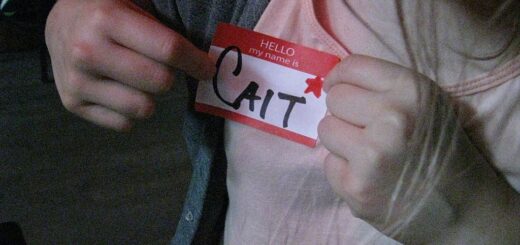Frankenstein
Joachin has been given a fantastic opportunity by his school. As part of his English course, he has been given access to Drama Online, a resource populated with recordings of National Theatre performances. Whereas most people are able to watch these plays on YouTube for merely a week before losing access, Joachin is able to watch as many of these plays as he wants at any time he wishes. Joachin does not see this as fantastic.
I however, am delighted. In particularly, I’m delighted that one of the plays he has to watch is Frankenstein, starring Benedict Cumberbatch and Johnny Lee Miller, which I missed the first time round.
One thing I’m learning about drama in the theatre, as opposed to on screen, is that the theatre can be a little… indulgent. The play started with ten minutes of Benedict Cumberbatch writhing around on stage while emitting incoherent grunts. From an actor’s standpoint, an absolute dream. No other actors on stage, ten minutes of pure emoting, portraying the journey from new born and helpless to slowly gaining a semblance of control.
From a story telling point I view, I think we got the gist of it after the second attempt to stand up. To be fair, we did rather make our own entertainment, cheering whenever he got to his feet, booing every time he fell back down again. By the the time Johnny Lee Miller ran on stage, screamed at Benedict Cumberbatch, and then ran off again, our state of mind was sufficiently accepting for a train to appear and then disappear on stage for no reason and then Benedict Cumberbatch to spend the next five minutes eating grass and giggling at birds.
After that, things began to settle down a bit. Having got all of its artiness out of the way early, the play was finally ready to sit back in its chair, spread its legs out and start regaling us with a story.
What a story it is. If all you know of Frankenstein is the Boris Karloff monster with bolts in its neck and a single word vocabulary then you’re in for a treat. This is a story of man’s capacity for cruelty, of parental responsibility, and filial retaliation. This story mixes Oedipus, Prometheus, Faust, Pygmalion, and Adam and Eve into one big melting pot and comes up with one big question: are we born evil or does society make us that way?
For a gothic novel, the ideas contained in Frankenstein are surprisingly modern. Dr. Frankenstein’s rejection of his creation is based on his ugliness. In fact, the only one to accept the creature, rather than cast him out with sticks and stones, is a blind man who, unable to see his appearance, makes no assumptions about the creature and accepts him for who he is, a poor unfortunate desperate to understand his place in the world. Yet, from the play’s point of view, this is the creature’s undoing, for it is the knowledge the blind man teaches him that enables him to truly emulate the cruelty of humanity. The metaphor is not subtle. The blind man even teaches the creature to quote Paradise Lost, just in case we haven’t got the message that eating from the tree of knowledge is what causes sin to enter the world.
But then, just when you think you are being bludgeoned to death with the moral of the story, you realise that there is subtlety here after all. The creature thinks that it is knowledge that has caused him to become cruel, but it is his own choices that lead him to his behaviour. He claims to only take revenge because he has been taught about revenge and pride and honour, but his revenge is savage and his choices often brutal. In the end, this is a story about nature vs nurture. The real issue is not whether knowledge gives us the capacity for evil, but whether evil is in-built or a reaction to the way we are treated. In particular, if we treat people based on the way they look, should we be surprised if they live up to those expectations. And is it then our fault or theirs?
Overall, a fascinating adaptation of a story that has singularly entered and altered the nation’s consciousness. Just a little less writhing, and my enjoyment would be complete.





Recent Comments